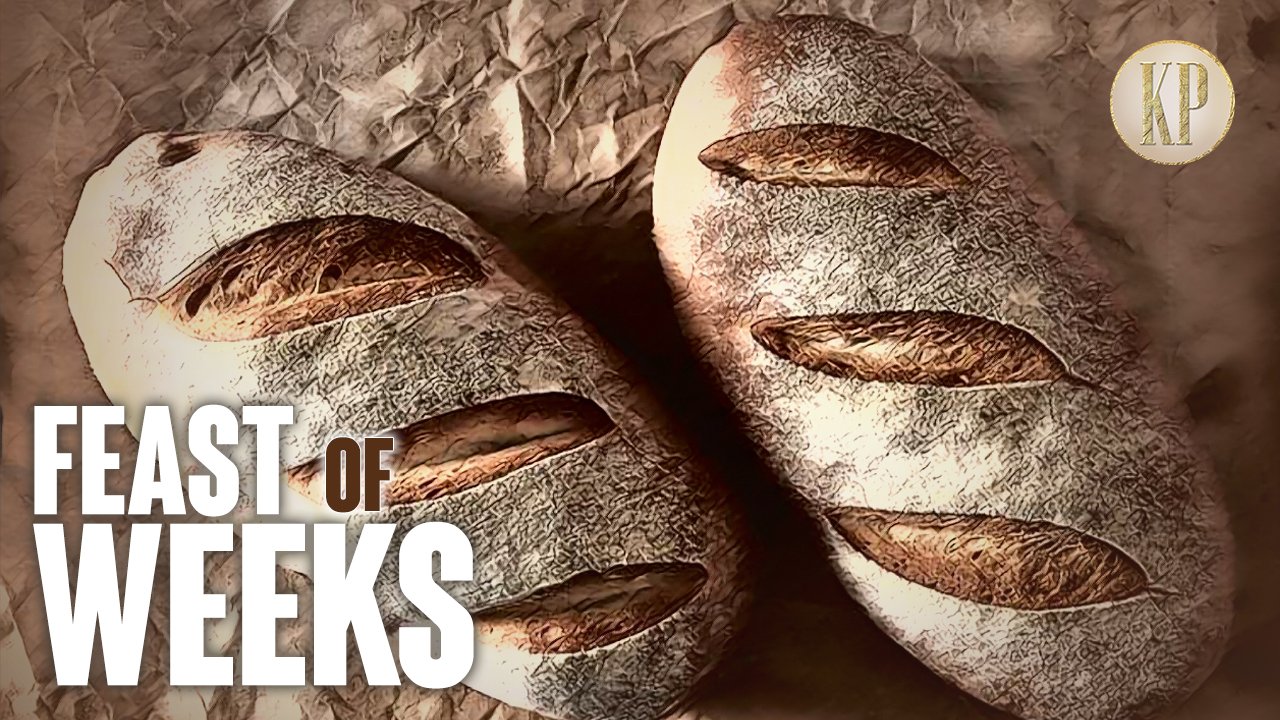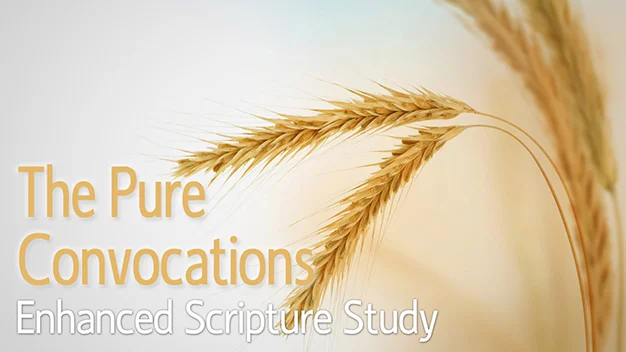Feast of Weeks is the convocation that we are currently fulfilling, and we are actually at its tail end. In Matthew 24, when Yeshua spoke of prophetic events that would usher in the end of the age and his second coming, he punctuated the prophecies by presenting an illustration of the fig tree, saying:
32“From the fig tree learn its lesson: as soon as its branch becomes tender and puts out its leaves, you know that summer is near. 33So also, when you see all these things, you know that he is near, at the very gates.”
—Matthew 24:32–33
Summer here can be seen as the millennium reign. When considering the prophetic feasts of Israel, we know that they occur in two seasons: spring and fall, summer being in between. The spring feasts include Passover, Unleavened Bread, First Fruits, and Weeks or Pentecost. The fall feasts include Trumpets, Atonement, and Booths or Tabernacles. Prophetically, the spring feasts are fulfilled by events that precede the millennium. The fall feasts are fulfilled by events that usher in the Kingdom and continue throughout it. We cover this topic in several materials on this site, including the enhanced scripture study The Pure Convocations, several other articles, and the final episode of the Churchianity podcast.
Feast of Weeks is the second of three feasts associated with harvests, the others being Feast of Unleavened Bread and Booths (also called Ingathering). Knowing what Feast of Weeks represents spiritually, which encompasses the two leavened loaves at its heart, we know that this feast began to be fulfilled nearly two thousand years ago, just as the assemblies began to be corrupted by infiltration and the Good News of the Kingdom became tainted. Leaven was introduced to the worship, indicated in Revelation by the letters to the seven assemblies of Ephesus, Smyrna, Pergamum, Thyatira, Sardis, Philadelphia, and Laodicea. Philadelphia was the rare exception as it was not admonished. That particular assembly, which was surrounded by Hellenistic culture and existed in a city that housed buildings dedicated to pagan deities, eventually succumbed to corruption as well. The city of Philadelphia and its assembly were in Roman hands until 1379 C.E. when the Turks conquered the region.
At any rate, leaven, or false doctrine, was introduced to the once pure assemblies, as seen in verses like Revelation 2:14–15, where Yeshua points out the corrupt teachers of Pergamum.
14But I have a few things against you: you have some there who hold the teaching of Balaam, who taught Balak to put a stumbling block before the sons of Israel, so that they might eat food sacrificed to idols and practice sexual immorality. 15So also you have some who hold the teaching of the Nicolaitans.
—Revelation 2:14–15
The assembly in Thyatira was likewise admonished by Yeshua, who said:
20But I have this against you, that you tolerate that woman Jezebel, who calls herself a prophetess and is teaching and seducing my servants to practice sexual immorality and to eat food sacrificed to idols.
—Revelation 2:20
Jude also laments the infiltration that led to the corruption of an unknown assembly he writes to:
3Beloved, although I was very eager to write to you about our common salvation, I found it necessary to write appealing to you to contend for the faith that was once for all delivered to the set apart ones. 4For certain people have crept in unnoticed who long ago were designated for this condemnation, unrighteous people, who pervert the grace of our Elohim into sensuality and deny our only Master and Sovereign, Yeshua HaMashiach.
—Jude 1:3–4
The emissary Peter also addressed the growing problem when writing to another assembly:
1But false prophets also arose among the people, just as there will be false teachers among you, who will secretly bring in destructive heresies, even denying the Master who bought them, bringing upon themselves swift destruction. 2And many will follow their sensuality, and because of them the way of truth will be blasphemed. 3And in their greed they will exploit you with false words. Their condemnation from long ago is not idle, and their destruction is not asleep.
—2 Peter 2:1–3
We are closing in on two thousand years since Yeshua left this earth (the early 2030s marks the approximate anniversary in fact). While we cannot know the day or the hour of Yeshua’s imminent return (Matthew 24:36), he promised that certain events would foretell his near coming. In the order of prophetic events, the Feast of Weeks places us between the end of his time on earth and his return to it in power. When the priests of old held up two leavened loaves and waved them before the Most High (Leviticus 23:17), those loaves may have been of generous size and were perhaps consumed by many due to the amount of flour required in the original command, that being two-tenths of an ephah or about 8 cups.
Since we are not a nation at present, have no priesthood or temple, and are not gathered in our own land, these feasts can only be commemorated and memorialized in part. To that end, we have provided two recipes to accommodate your Feast of Weeks celebration: Rise & Rye and Sprout & Shout. In waving the two loaves before Yah, we recall the two thousand years of leaven that has permeated the earth, and we look forward to its end, which ushers in the Kingdom or millennium reign. Note also that the millennium itself is bookended by two resurrections, one at its commencement and the other at its close. Thereafter, the one thousand years is a kind of summer, with the two resurrections acting as spring and fall harvests occurring before and after. With that, we can look to Yeshua’s illustration of the fig tree:
32“From the fig tree learn its lesson: as soon as its branch becomes tender and puts out its leaves, you know that summer is near. 33So also, when you see all these things, you know that he is near, at the very gates.”
—Matthew 24:32–33
Large prophetic events have been taking place of late, and the pace of their unfolding is quickening daily. The Feast of Weeks is of great importance in that its substance leads us directly into the coming millennial Kingdom, and that is something to celebrate.






